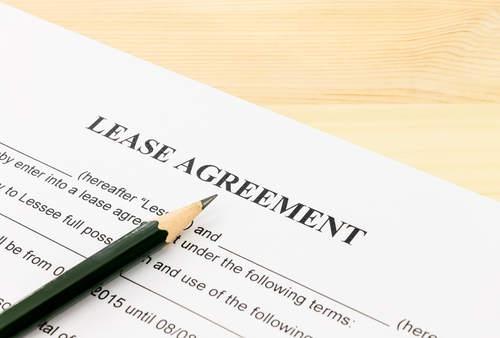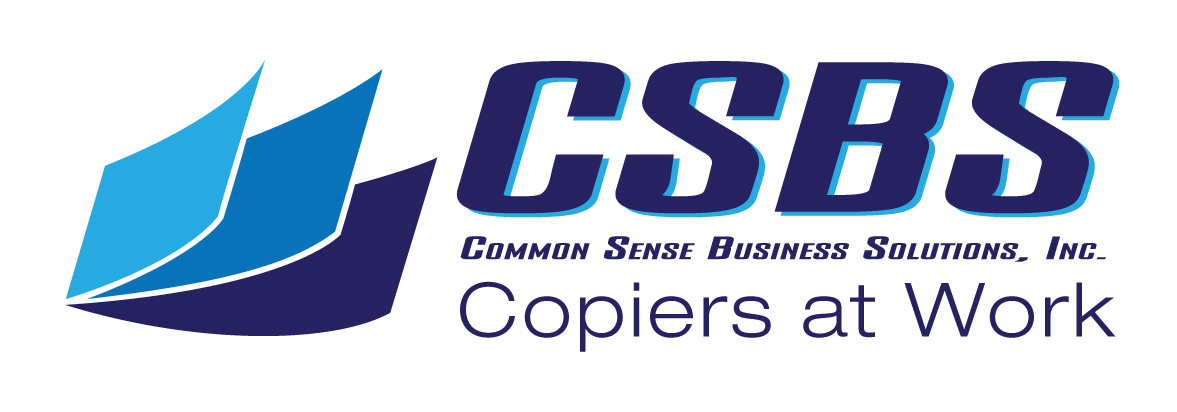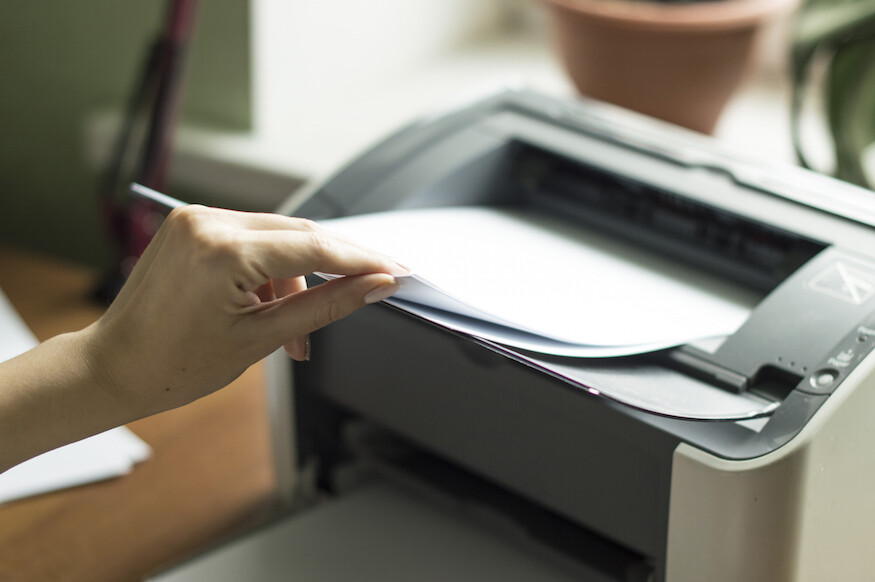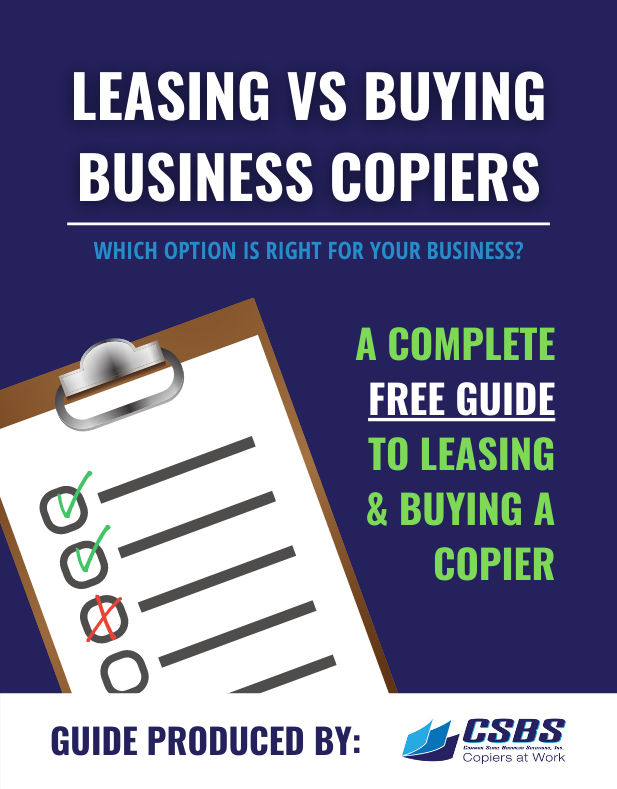A copier lease can make sense for a lot of different kinds of companies. Actually, you might be surprised to find out that over the last few decades more companies across industries have chosen to lease copiers rather than buy.
Thirty years ago there was an even split between companies who chose to lease versus buy copiers. Today, about four out of five private businesses, schools, and medical practices go the copier lease route.
One easy way to explain the huge increase in leases these days is the fact that leasing allows you to upgrade your copier every three years.
That’s about the amount of time that another game-changing innovation comes around – e.g., being able to upload directly to the cloud or create booklets with a Konica Minolta copier – so leasing might really be the way to go.
Maybe the best thing about a copier lease is that you don’t have to put a ton of money down to get all of this technology. Today’s copiers do much more than copying – they copy, print in vibrant color, three-hole punch, fax, and digitally scan – and a copier lease can very affordably give you instant access to those benefits.
Copier Lease Versus Purchasing
 There are two really big factors that should inform your decision of whether to buy or lease a copier: The size of your business (and, by extension, your initial operating budget) and the kinds of prints that you’re going to need in the future.
There are two really big factors that should inform your decision of whether to buy or lease a copier: The size of your business (and, by extension, your initial operating budget) and the kinds of prints that you’re going to need in the future.
If you’re a small or medium-sized business with a somewhat constrained operating budget that doesn’t need any fancy prints, then a copier lease might make more sense. You’re talking about manageable monthly payments and the option to upgrade later.
Some businesses also make the calculation early on that even though they have a larger operating budget they’re going to be doing quite a lot of printing. This could mean potentially thousands of pages of printing and copying per day.
If that’s the case then you also might want to think about leasing because leasing lets you upgrade your business copier after two or three years. What does that mean for your business? That you won’t have to factor in depreciation as heavily as you would with buying a business copier. Plus, with a copier lease there’s no down payment to worry about.
Then again, if you need a all-in-one printer from a company like Konica Minolta and you feel it has all of the options that you’ll need for the next five or ten years, then buying or a capital copier lease might be a good idea under some conditions.
Buying a business copier can be a tax write off and allow you to recoup your investment years down the road when you go to sell. A copier lease obviously lets you cost-efficiently get your hands on the newest Konica Minolta business copiers, but buying can also be a great option for larger businesses that have big enough reserves to cover the down payment.
Capital Copier Lease: Somewhere Between Leasing and Owning
There are essentially two kinds of copier leases – an operational lease and a capital lease. An operational lease (fair-market value lease) is far more common and features lower monthly payments.
The potential disadvantage is that the buyout cost could be higher should you choose to purchase that business copier later, which not every business does.
A capital copier lease, on the other hand, would be a good option if you’re more sure that you’ll eventually want to buy the copier you’re leasing now since you can lock-in the buyout price from day one.
FAQs About Copier Leases:
1. Why should I consider leasing a copier instead of buying one?
Leasing a copier offers flexibility and affordability, especially for businesses with constrained budgets or those anticipating future upgrades. With leasing, you can regularly update your equipment to access the latest technology without a significant upfront investment.
2. What are the advantages of leasing over purchasing a copier?
Leasing eliminates the need for a large initial capital outlay, making it accessible to businesses of all sizes. Additionally, leasing allows for easy upgrades, ensuring your equipment remains up-to-date with evolving technological advancements.
3. How often can I upgrade my copier with a lease?
Typically, copier leases offer upgrade options every two to three years, allowing businesses to stay current with technological advancements without the hassle of selling or disposing of outdated equipment.
4. Is leasing a copier a better option for small businesses?
For small businesses with limited budgets, leasing a copier can be a more financially viable option. It provides access to high-quality equipment without the burden of a substantial upfront cost, allowing resources to be allocated to other business priorities.
5. Can leasing a copier save me money in the long run?
Yes, leasing a copier can result in long-term cost savings, particularly for businesses that require regular equipment upgrades. With leasing, you avoid depreciation expenses associated with owning equipment, as well as the need for costly repairs or maintenance.
6. What factors should I consider when deciding between leasing and purchasing a copier?
When deciding between leasing and purchasing a copier, consider factors such as your business’s size, budget, and future printing needs. Leasing may be preferable for businesses seeking flexibility and cost-effectiveness, while purchasing may offer tax advantages and long-term ownership benefits.
7. Are there different types of copier leases available?
Yes, there are two main types of copier leases: operational leases and capital leases. Operational leases, also known as fair-market value leases, feature lower monthly payments and allow for equipment upgrades. Capital leases, on the other hand, offer the option to eventually purchase the copier at a predetermined buyout price.
8. What are the potential disadvantages of leasing a copier?
While leasing offers numerous benefits, it’s essential to consider potential drawbacks such as higher overall costs compared to purchasing over the long term and the obligation to return the equipment at the end of the lease term.
9. How does a capital copier lease differ from an operational lease?
A capital copier lease provides businesses with the option to eventually purchase the leased equipment at a predetermined buyout price. In contrast, an operational lease offers flexibility and lower monthly payments but does not include a buyout option.
10. Is leasing a copier a suitable option for businesses anticipating future growth?
Yes, leasing a copier can be an excellent option for businesses anticipating future growth as it allows for easy equipment upgrades to accommodate increasing printing needs. This flexibility ensures that businesses can scale their printing capabilities in line with their growth trajectory.



